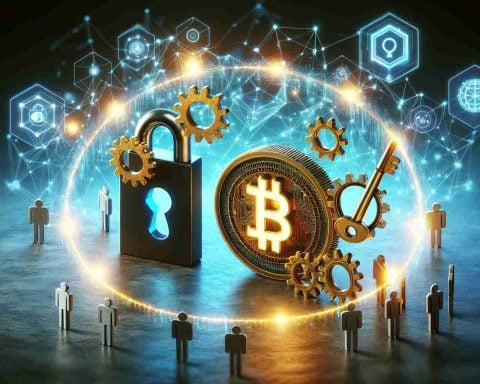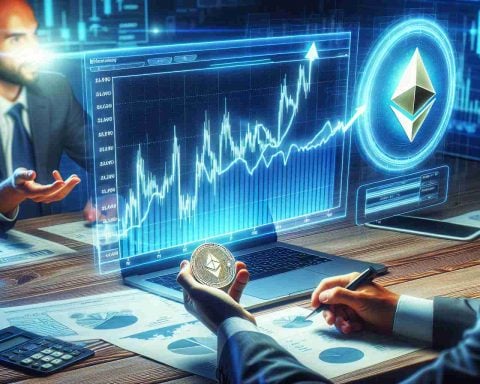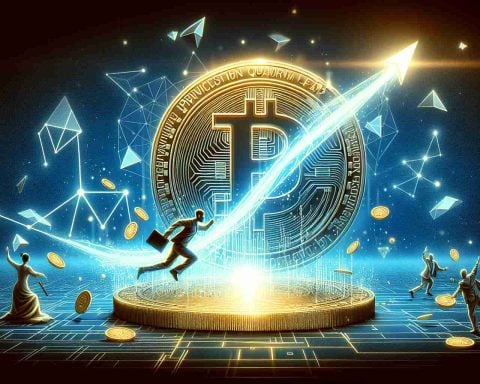In recent discussions, the concept of a “crypto dollar” has gained traction among financial experts and policymakers. Speculation is rising about the possibility of the United States adopting a digital version of its currency. Though the idea may appear futuristic, current trends indicate that this innovation might be more imminent than anticipated.
Cryptocurrency Evolution in the U.S.
The growth of cryptocurrency has been exponential, influencing economies worldwide. Observers have noted how digital currencies such as Bitcoin have carved a niche in global finance, paving the way for serious consideration by governments to integrate similar platforms into their national economies. The United States, a key player in financial innovations, is increasingly looking at how it can leverage the benefits of a digital dollar.
The Push for a Digital Transformation
Recent analyses suggest that the infrastructural shift toward digital money could offer numerous advantages. These include increased efficiency in transactions, enhanced security against fraud, and the elimination of outdated banking systems. Proponents argue that it can provide better transparency and streamline financial processes.
Challenges and Regulatory Considerations
Despite the potential benefits, several hurdles need overcoming. Regulatory frameworks must evolve to accommodate such a transformation, ensuring robust security measures to protect against cyber threats. Additionally, public confidence must be secured through clear communication about the new system’s functionality and reliability.
Ultimately, the concept of a digital dollar signifies a significant shift in economic strategy. Whether or not it becomes reality, the conversation about such possibilities signals the U.S.’s readiness to embrace digital economies’ future.
Is the Digital Dollar a Threat or Opportunity for Traditional Banking?
The Human Impact of a Digital Dollar
While the concept of a digital dollar excites many in the tech and finance worlds, its potential impact on everyday life is profound. Imagine a world where cash transactions are nearly obsolete, and everyone from major retailers to small corner shops accepts only digital currency. This shift could dramatically affect payment methods, influencing how individuals manage and perceive their finances.
Community Implications
Communities across the United States could experience varied effects due to this shift. Some rural areas, where access to digital infrastructure remains limited, might face significant challenges. Local businesses in such regions could struggle to adapt to a purely digital economy, risking economic exclusion. Conversely, urban areas with robust tech systems might see a surge in economic activity, with faster, frictionless transactions becoming the norm.
National and International Ramifications
On a national scale, a transition to a digital dollar could redefine the U.S. banking sector. Traditional banks may need to overhaul their operations, adopting new technologies to compete with or integrate digital currency systems. There could be an increased focus on cybersecurity and digital literacy among the general public to ensure safe transition and operation within the new financial landscape.
Internationally, the introduction of a digital dollar may influence other countries to follow suit, modifying global financial systems and potentially disrupting existing currency hierarchies. Could this lead to a more interconnected global economy, or create new forms of economic competition and digital divide?
Fascinating Facts and Controversies
One striking fact is that America’s move towards a digital dollar might significantly reduce counterfeiting. Digital currencies are less susceptible to cloning than paper money, offering increased security. Yet, this also introduces controversies, especially concerning privacy. Digital transactions can be closely monitored, raising concerns about surveillance and loss of anonymity in the financial sphere.
Analyzing Advantages and Drawbacks
Some advantages of adopting a digital dollar include enhanced transaction speed, reduced costs of currency production, and improved fiscal policy tools. A digital currency might allow for more direct monetary policy decisions, such as targeted “helicopter money” during economic downturns.
However, the disadvantages should not be overlooked. There is the potential risk of exacerbating social inequities. Those without access to digital technology could be left behind, and unprecedented reliance on technology may lead to vulnerabilities. Additionally, power outages or cyberattacks could disrupt entire economies, raising the question: Is the convenience of digital currency worth potential systemic vulnerabilities?
Key Questions and Answers
How might digital dollars affect personal savings habits?
A digital dollar could encourage more transparent and efficient personal financial management, potentially transforming savings habits. Apps and platforms designed to interact with digital dollars might promote better savings through ease and automation.
Will digital dollars signal the end of physical banks?
Not necessarily. While the role of physical banks might evolve, they could still serve as vital financial advisory centers, offering face-to-face services and handling complex transactions that require a personal touch.
Is a digital currency inherently more secure?
While offering increased protection against physical theft and certain types of fraud, digital currencies need strong cybersecurity measures to defend against hacking and digital theft.
For further reading on the evolution of digital currencies, visit Coindesk. To explore how financial systems adapt to digital changes, check out Financial Times.
















